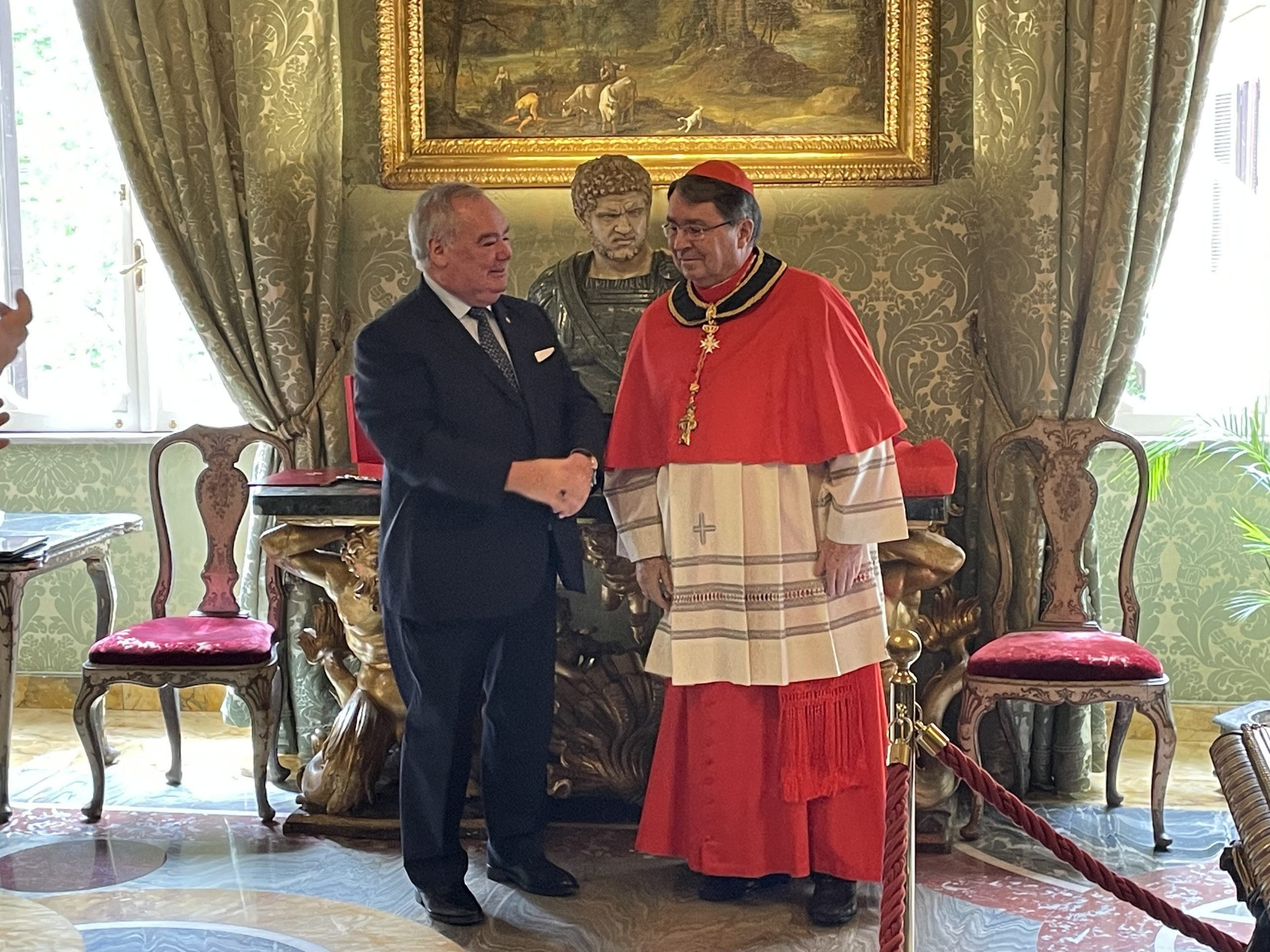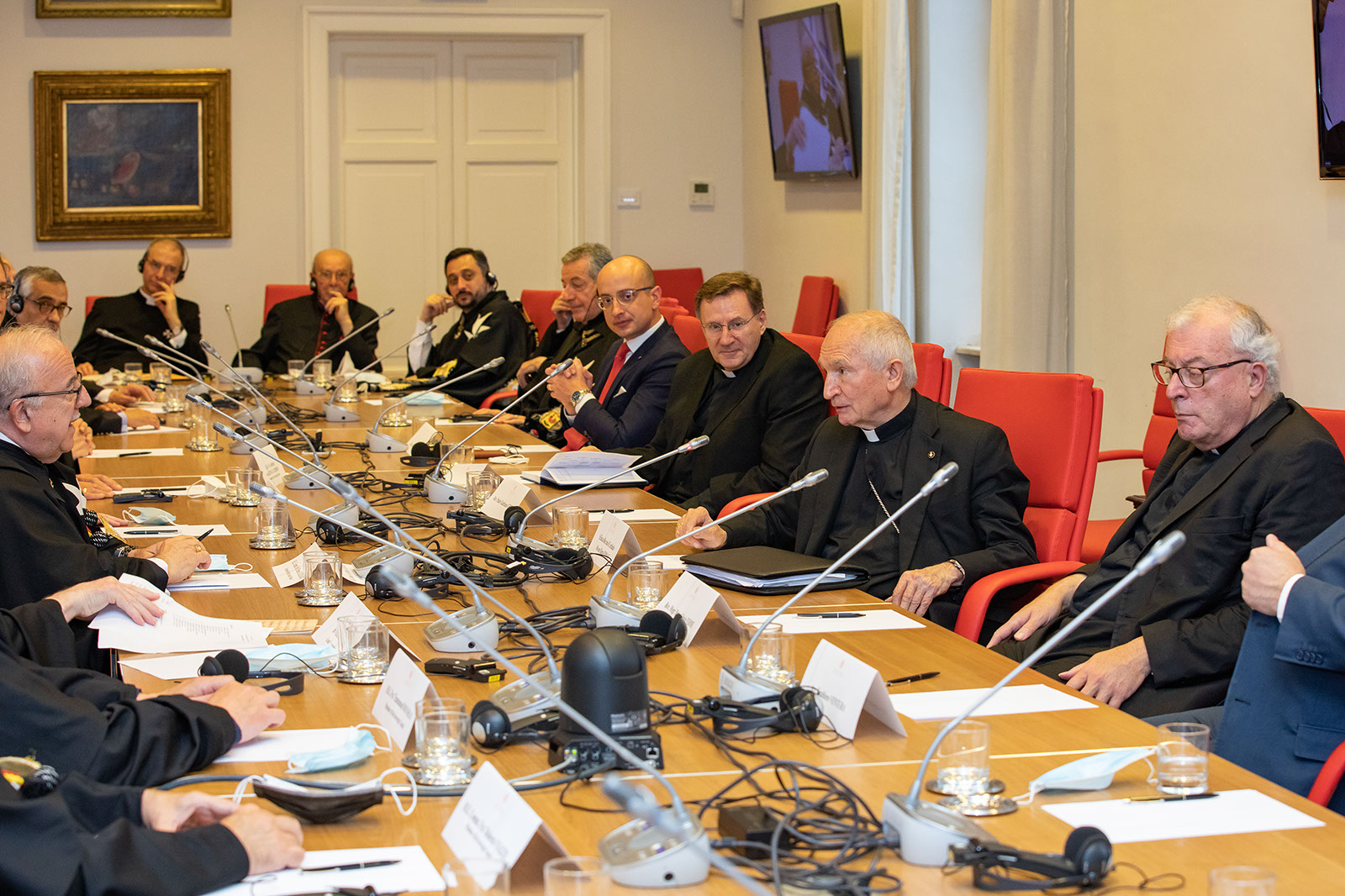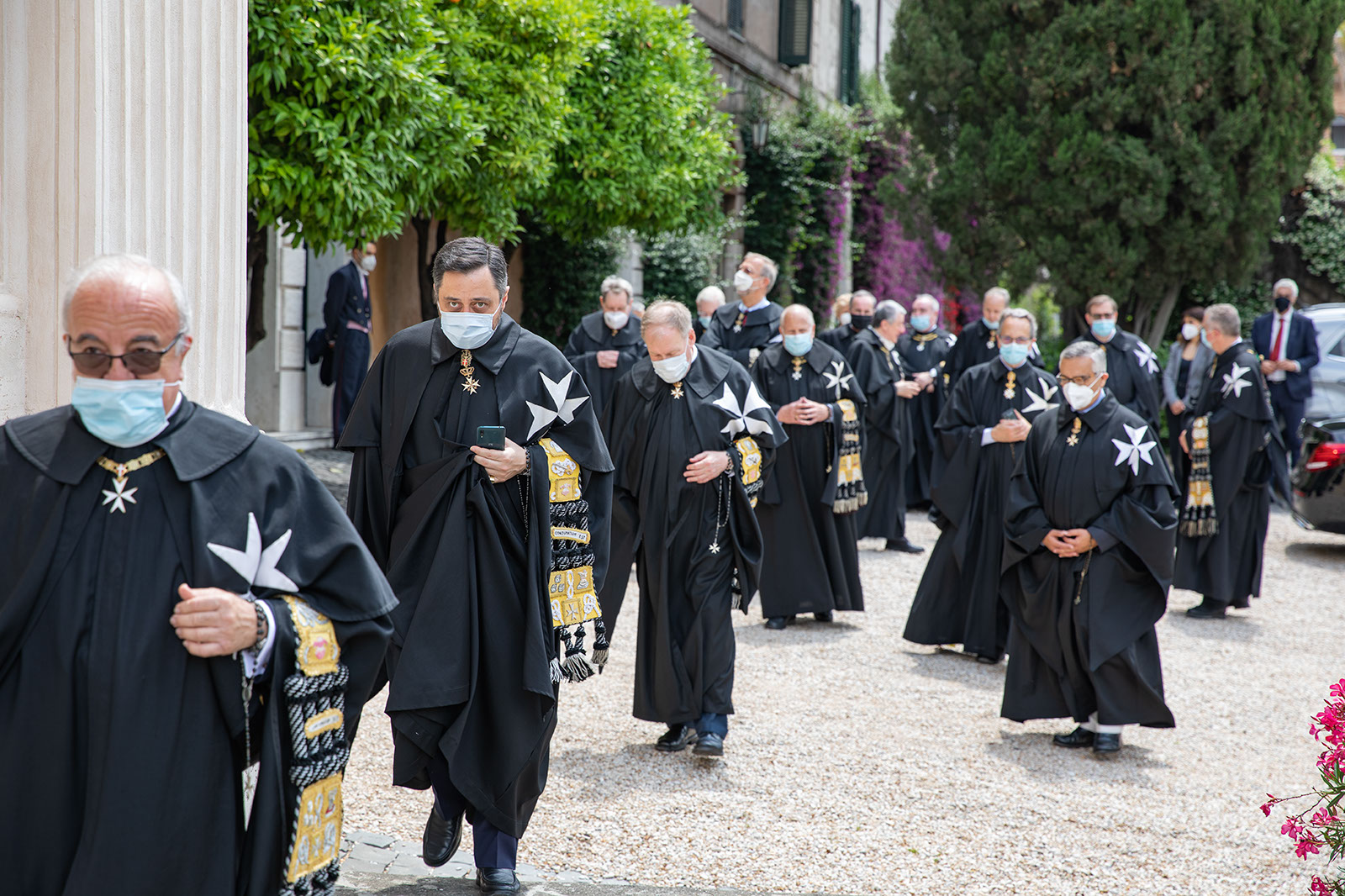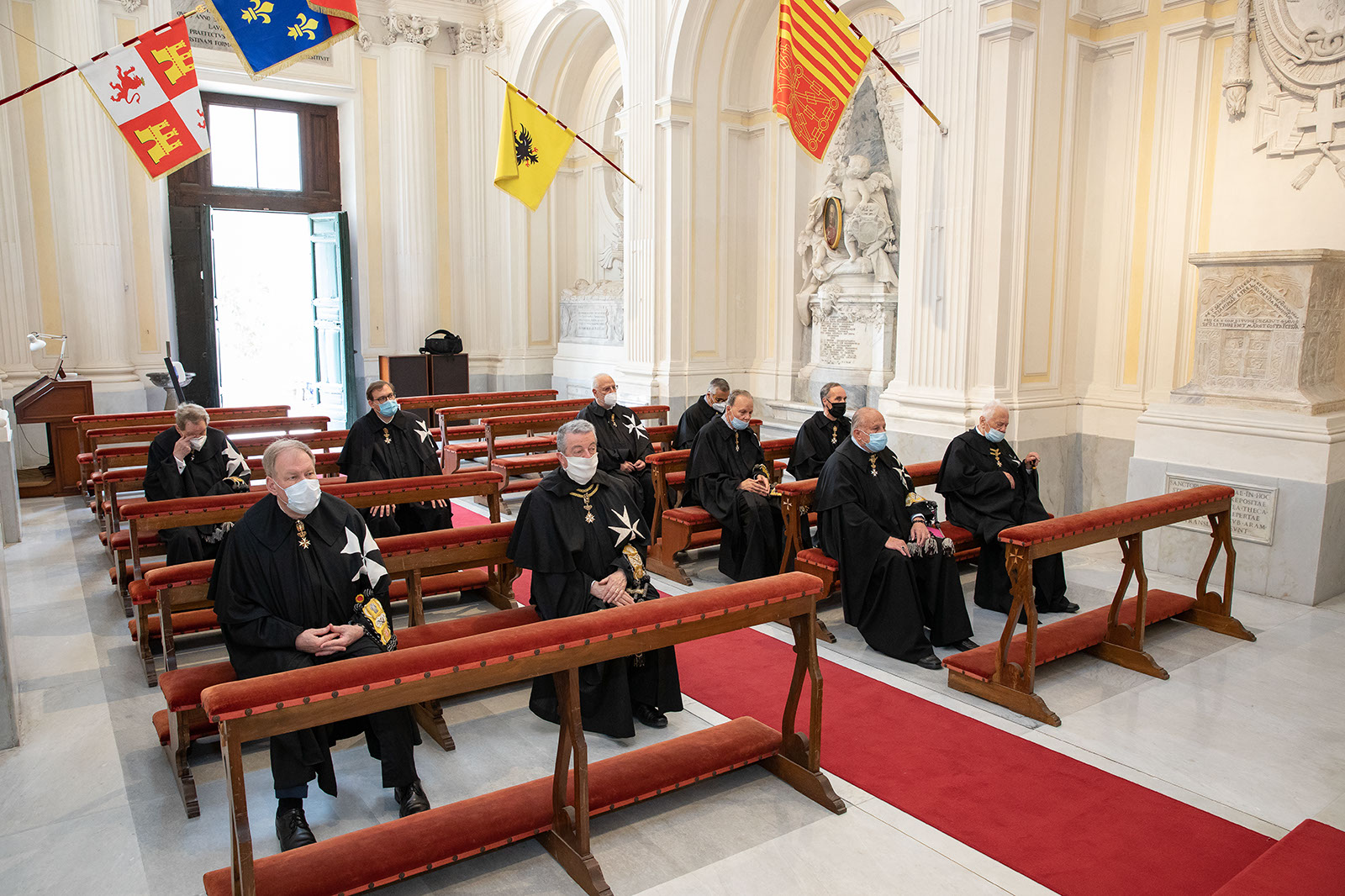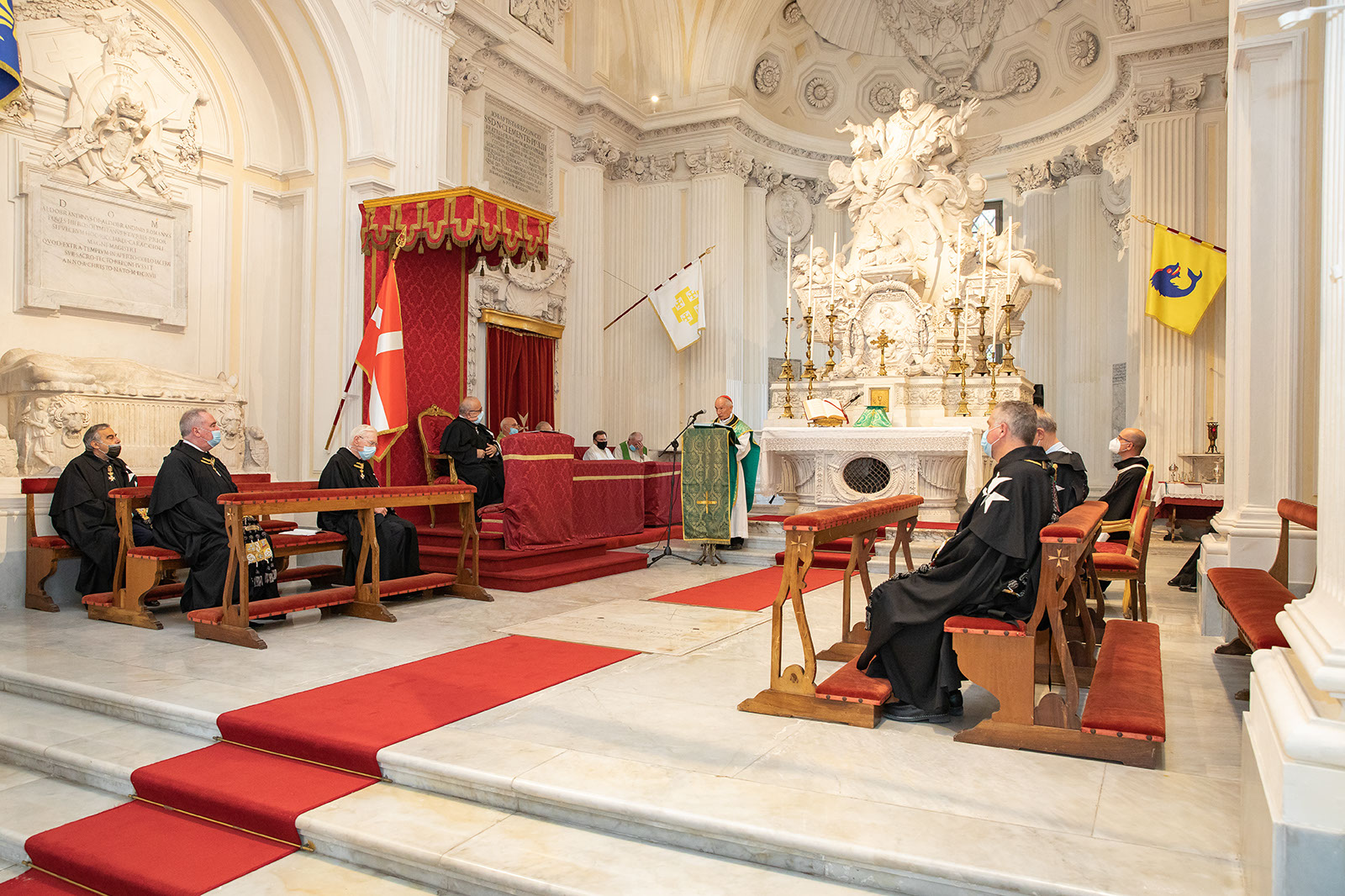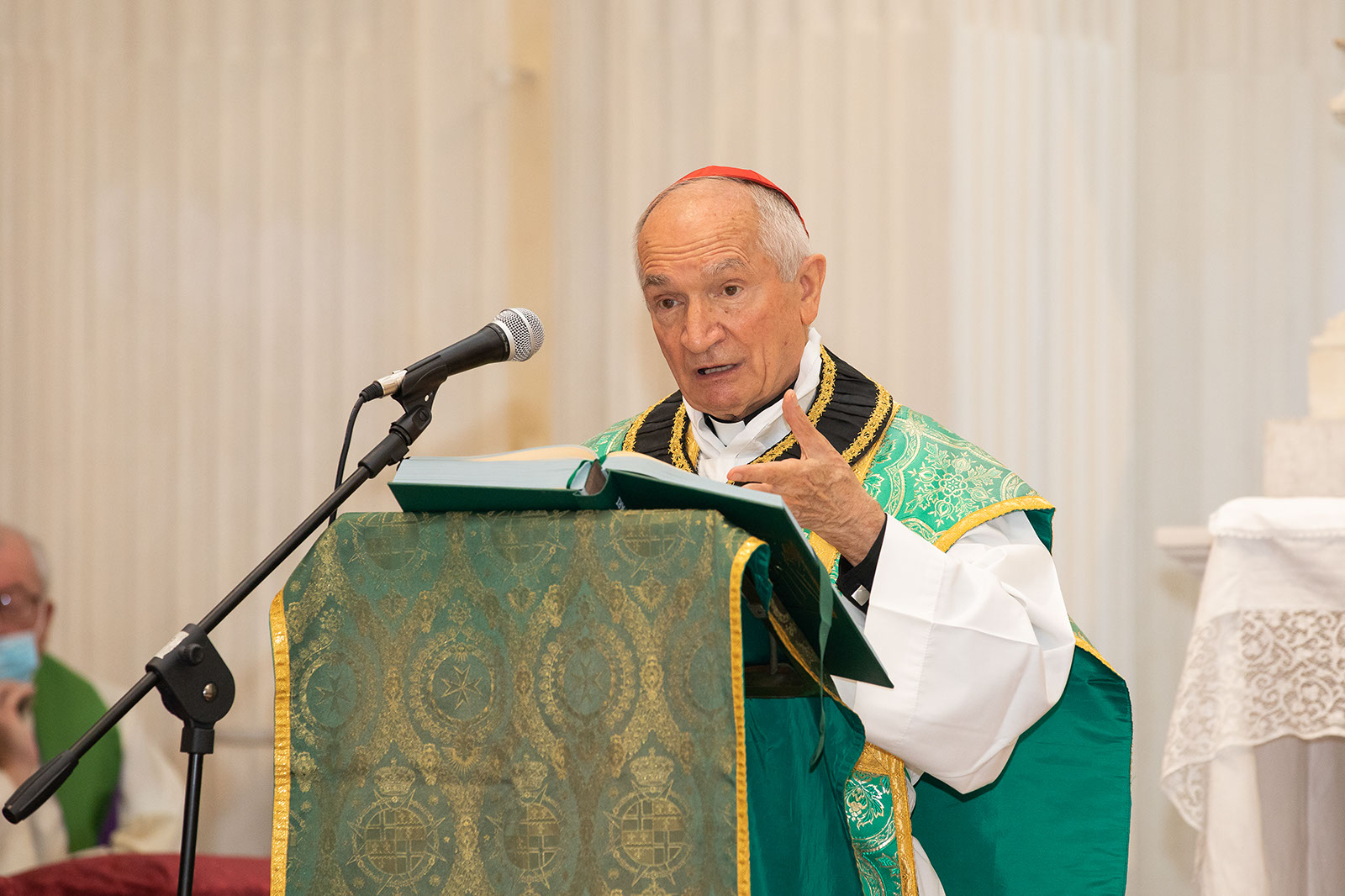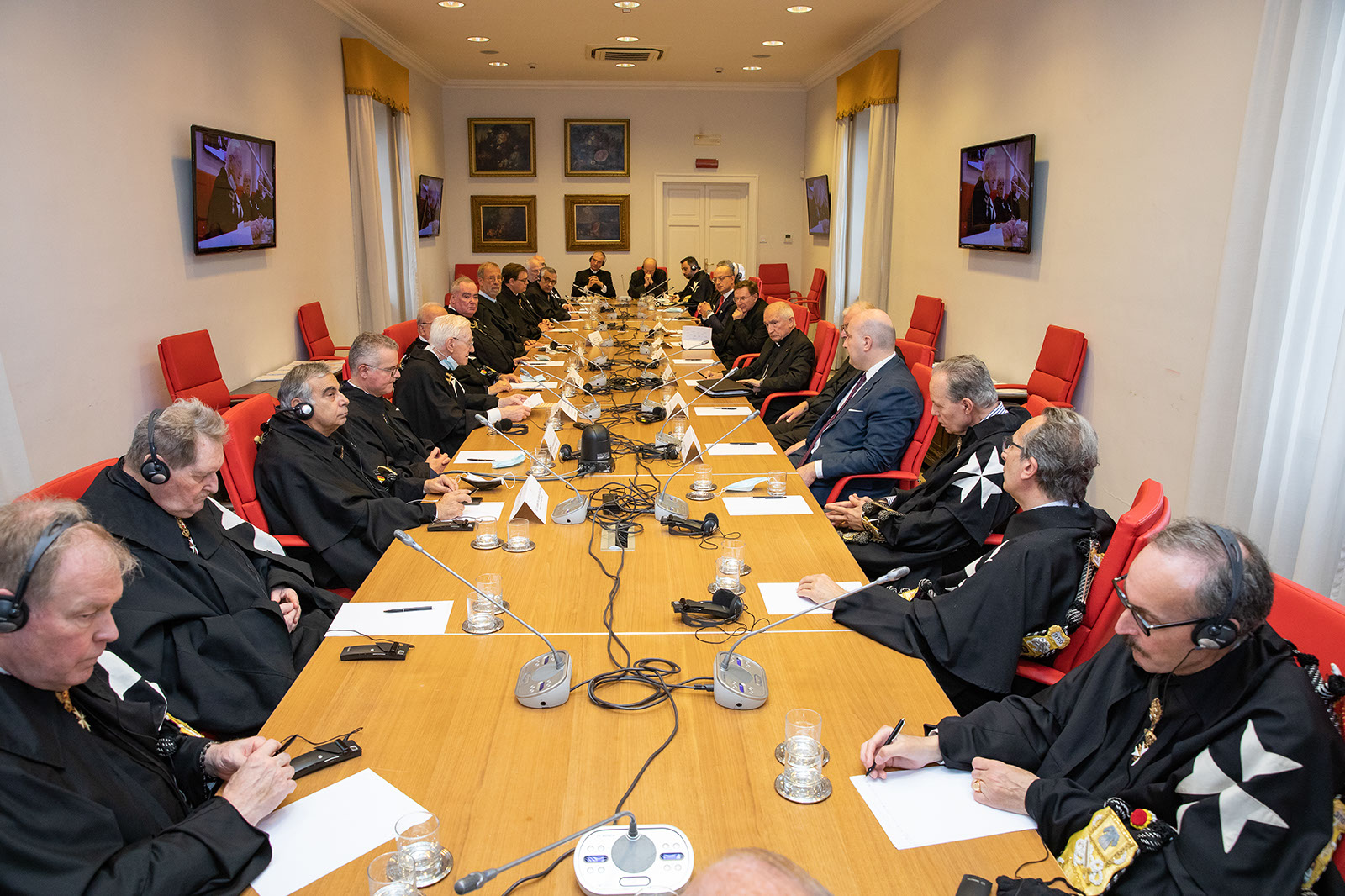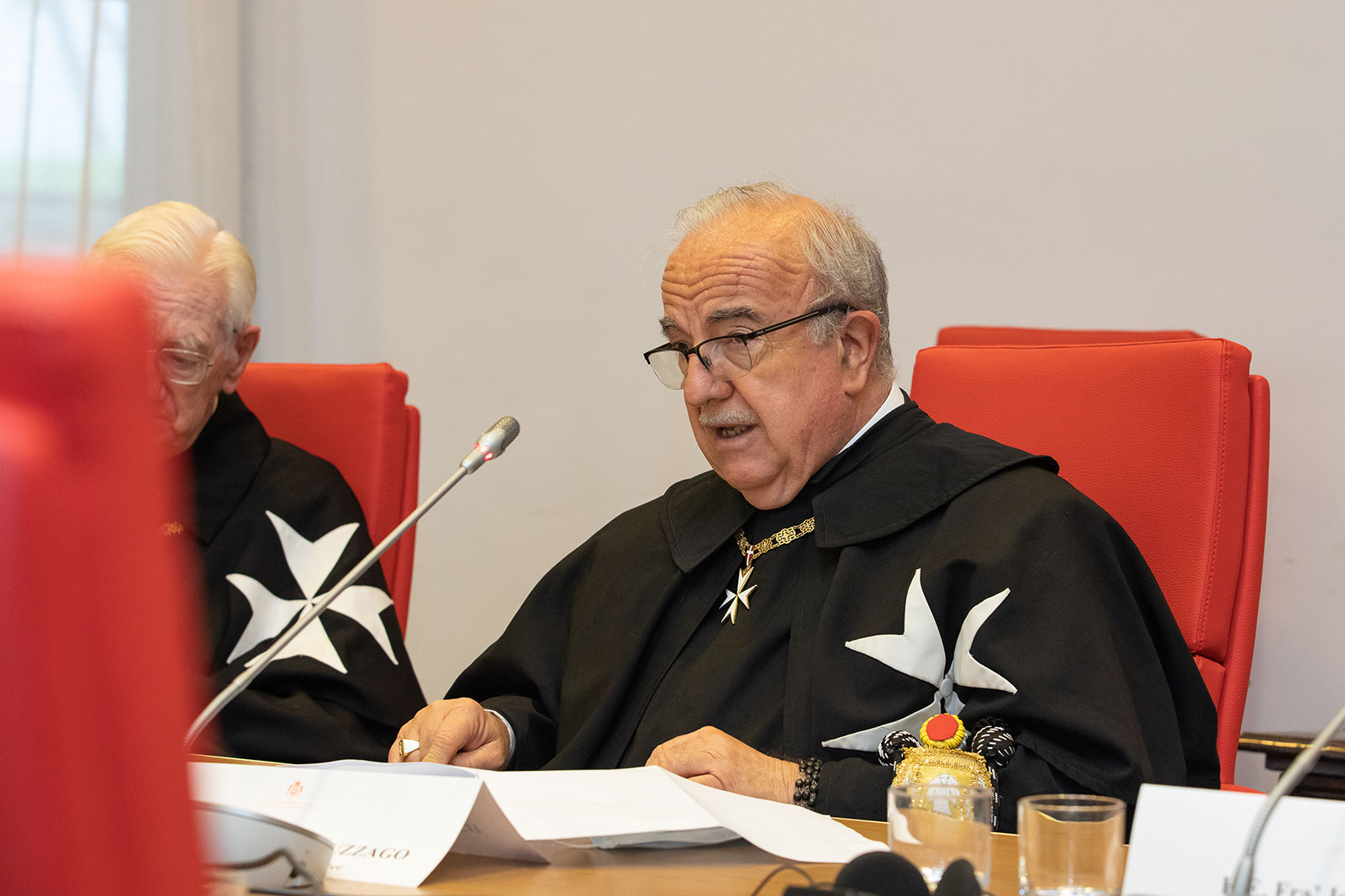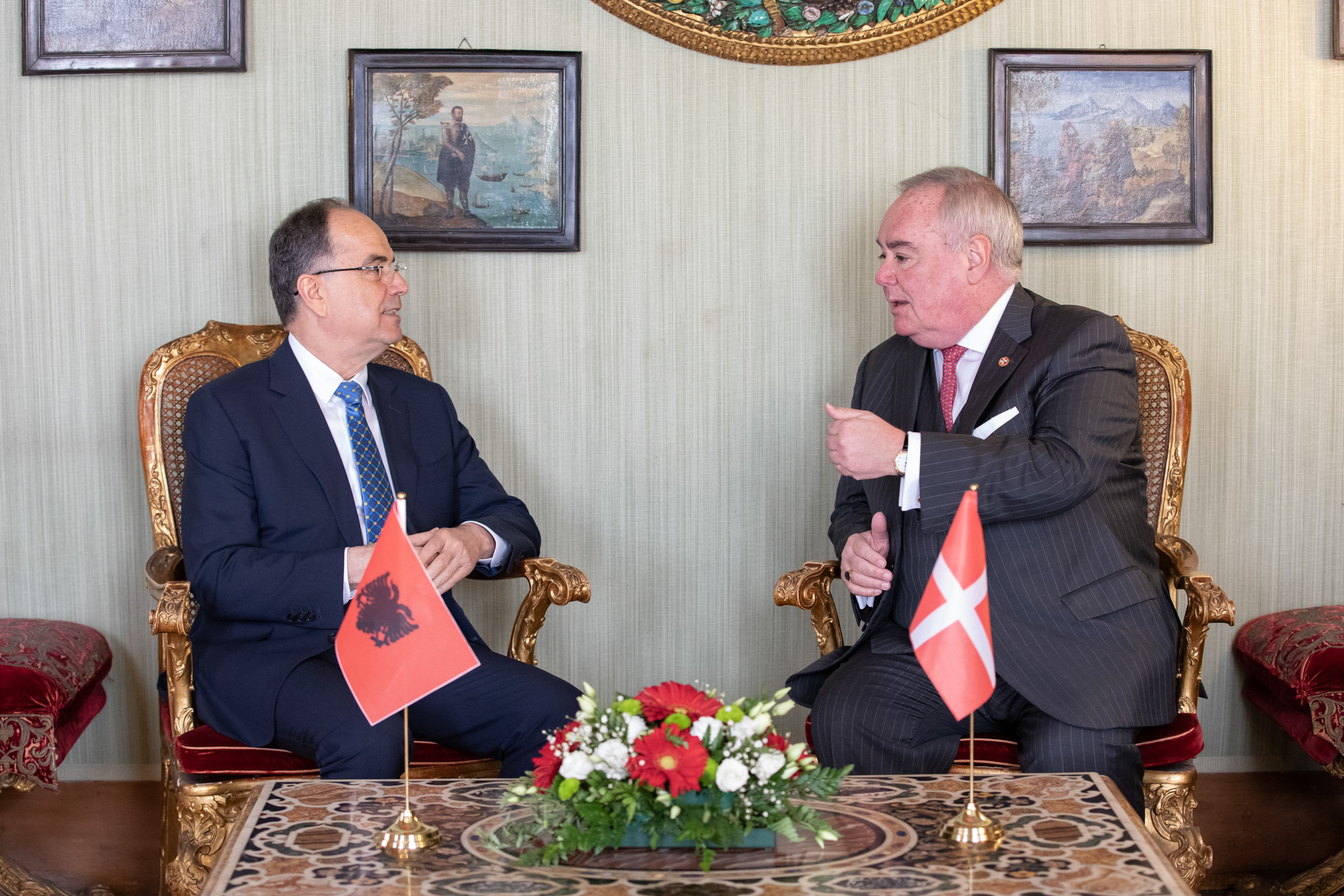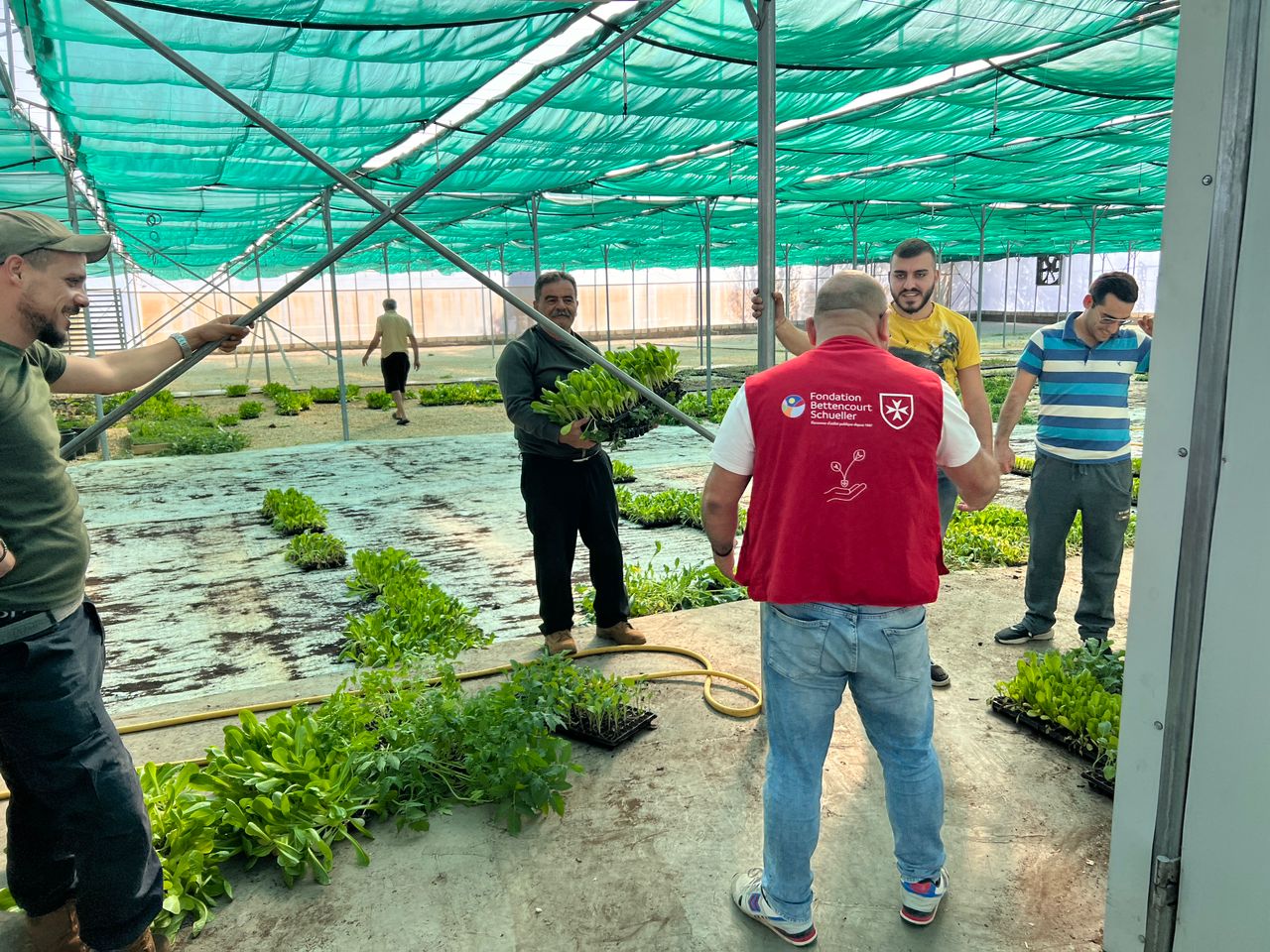Cardinal Silvano Maria Tomasi, the Pope’s Special Delegate to the Sovereign Order of Malta, yesterday met the members of the First Class with the Lieutenant of the Grand Master Fra’ Marco Luzzago. The purpose of the meeting is to take stock of the spiritual renewal process in which the Order is engaged, the updating of the Constitutional Charter and the Code, the aspects that will affect the life of the religious and the complementarity of all members in pursuing the charism of the Order: serving the sick and the poor and the example of a consistent Christian life.
“These elements, that give the Order its historical identity, are at the heart of the reform,” said Cardinal Tomasi. “In this context, a closer observance of religious vows by the Professed is proposed, as well as an amendment of norms and practices to make them more harmonious with the Code of Canon Law. The meeting – which took place in Rome at the Order of Malta’s Magistral Villa – was attended by 32 Professed, both present and online.
On this occasion we asked Cardinal Tomasi about the main points of the reform discussed during the meeting.
Does Your Eminence confirm that one of the main items of the reform is to harmonize the Order of Malta’s rules with the Code of Canon Law, including the strengthening of the First Class’s religious vows and community life?
It has been often stated that a key objective of the current renewal is to protect and strengthen the Order of Malta’s originality and identity as a lay religious order of the Catholic Church.
This objective encompasses an important initiative, that of leading the Professed to a commitment that is more integrated in the Order’s works and providing them with the opportunity, for example, to practice the vow of poverty and community life with greater consistency.
We all hope that the Professed can be engaged full-time in the Order’s activities for the most vulnerable, and not only part-time as occurs today when they have to earn a living in secular employment.
So how will the life of the First Class be regulated?
In living the charism of the Order of Malta and their vows, the Professed, as far as possible, must be involved in the Order’s activities according to their specific capabilities. Obviously, the Order will be responsible for their living expenses. This different commitment of the Professed has many advantages:
– they will no longer be obliged to earn a living outside the Order;
– they will fully live their commitment to the Order;
– they will be able, if possible, to live in community with other Professed;
– they will strengthen the spirituality of the Order’s works by their very presence, making them more visible and an example for all the other members.
The issue of the observance of the vows of poverty will be resolved because the Order will support them financially,
Given that the current rules greatly limit the number of candidates for the office of Grand Master, how will the requirements for his eligibility change?
The present nobility requirements for election to the Grand Master limit the number of candidates. Today only 11 Professed have the qualifications to be elected Grand Master. Some of them are over eighty and some even ninety. For this reason, the new Constitution provides for the removal of nobility requirements for election. The aim is to allow the Order to elect a Grand Master from among a greater number of candidates. We are still talking about Professed Knights of solemn vows.
Will the new life commitment of the Professed, freed from secular employment and able to be involved full-time in the Order’s works, stimulate new vocations?
Naturally, it is hoped that it will. The pastoral care of vocations is the responsibility of all the Order’s members. Over the last 15 years, however, a small number of new vocations has struggled to equal that of the Professed who have died. I am convinced that the Holy Father’s request to “confirm the profile of the Professed according to the identity of consecrated life in the Church” constitutes a challenge that concerns the young people of today.
Moreover, the constitutional changes and the Code reflect what the Second Vatican Council teaches on the renewal of religious life.
If in future the Order again offers Professed members positions in the Order’s works and gives them material support – a practice abandoned after the Order lost Malta in 1798 – it will free Professed members from the need to earn a living in secular employment. The future Professed will be able to live fully the Order’s proprium: “tuitio fidei et obsequium pauperum”.
Vocations come from God, but we must cooperate with Him with prayer, good example and good planning. The reform must also serve this purpose and make vocations to the Order more attractive to younger candidates.
Is it true that training will play an important role at all levels and for all Classes?
The theological and spiritual formation of all the members of the three classes, as well as preparation for admission to the different classes of the Order, will become an essential point as a result of the reform. There has never been a unique and modern programme for the formation of the new Professed. The new period of novitiate will offer an interesting combination of theological and spiritual formation and commitment to assisting the vulnerable.
What is the timetable for concluding this reform?
It’s difficult to make predictions today. We’re at a good point but more work is still needed. We’re accelerating the process to achieve as soon as possible the Order’s normal life which we all desire, both in the Church and in today’s society, as a witness of authentic charity and hope for all.





